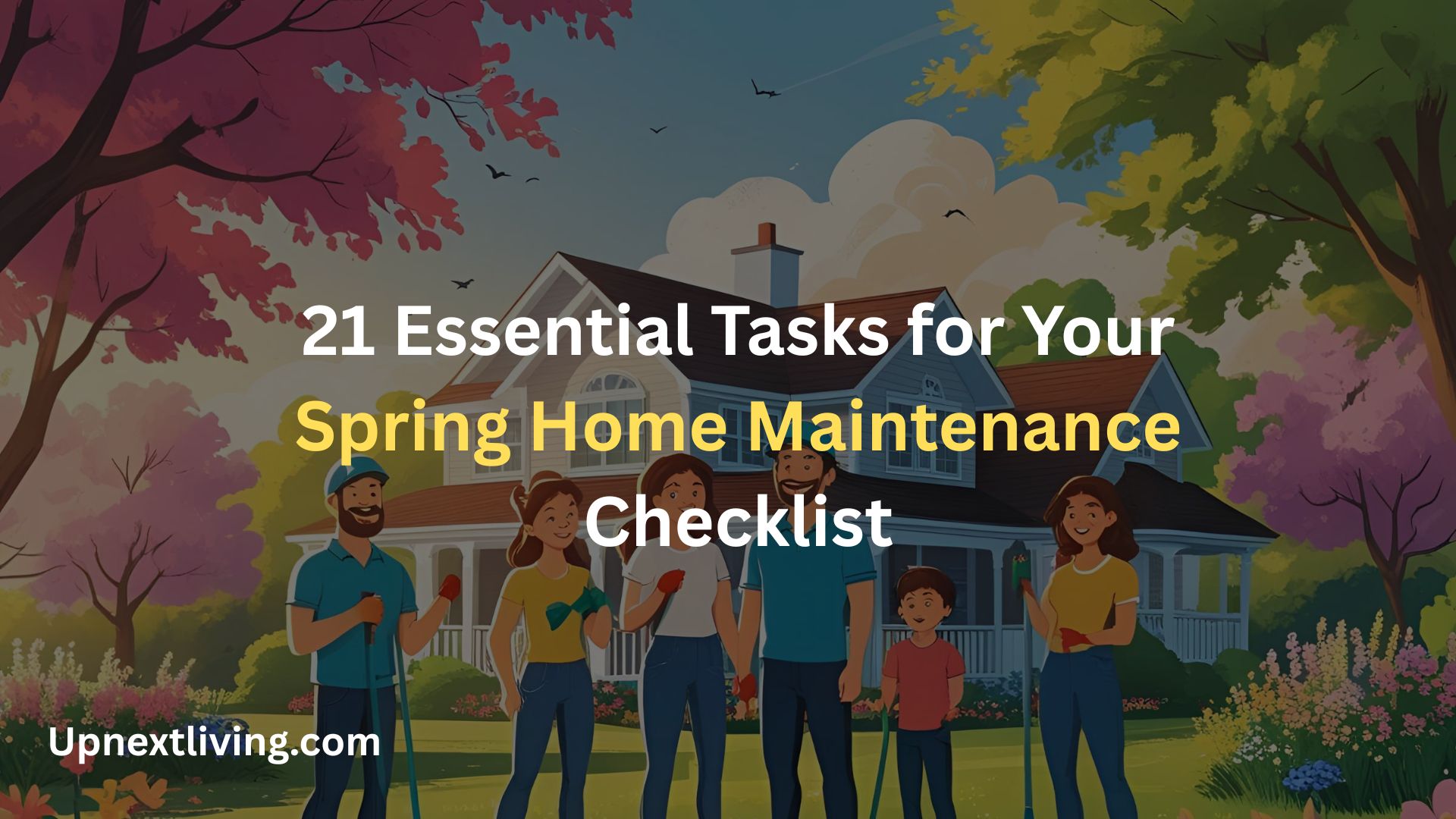
The Ultimate Guide: 5 Non-Negotiable Home Maintenance Tasks This Season to Save You Thousands
The 5 Non-Negotiable Home Maintenance Tasks This Season:
1. Mastering Your Home’s Water Defenses: Gutters, Roof & Foundation Resilience
Indore’s climate, particularly the heavy monsoon downpours and the intense summer heat, makes water management and structural integrity paramount. This isn’t just about aesthetics; it’s about preventing catastrophic water damage.
- Gutters and Downspouts (Your First Line of Defense):
- The Deep Dive: Your gutters are designed to channel thousands of liters of rainwater away from your home’s foundation. When clogged with leaves, twigs, dust, and even bird nests (common in Indore’s urban flora), this system fails. Water overflows, cascading directly onto your foundation, soaking into exterior walls, rotting fascia boards, and potentially leading to roof leaks. During the summer, dry debris can become a fire hazard.
- Actionable Steps:
- Frequency: Clean gutters at least twice a year – before the monsoon and after heavy leaf fall. More often if you have surrounding trees.
- Method: Use gloves, a small scoop, and a bucket. Flush with a hose to ensure downspouts are clear. Look for sagging sections or loose fasteners.
- Consequences of Neglect: Saturated soil around the foundation can cause hydrostatic pressure, leading to basement flooding or cracks. Rotting fascia boards are an open invitation for pests and further structural decay, costing ₹5,000 to ₹50,000+ to repair depending on severity.
- Roof Inspection (Your Home’s Umbrella):
- The Deep Dive: Your roof bears the brunt of Indore’s weather. Tiles can crack from heat expansion/contraction, shingles can lift or shed granules from UV exposure, and heavy rain can exploit the smallest vulnerabilities. Unchecked, minor leaks can lead to extensive water damage to ceilings, walls, insulation, and even create conditions ripe for mold growth, a serious health hazard.
- Actionable Steps:
- Visual Check: From the ground with binoculars, look for missing, cracked, or curled shingles/tiles. Check for excessive granule loss in gutters (a sign of aging asphalt shingles). Identify moss or algae growth, which traps moisture.
- Attic Inspection: Look for water stains, damp insulation, or signs of mold, particularly after rain.
- Professional Expertise: While a visual check is good, a professional roof inspection every 3-5 years is highly recommended, especially for older roofs or if you suspect damage. They can spot subtle issues you might miss.
- Consequences of Neglect: A compromised roof can lead to interior water damage (paint peeling, ceiling collapse), wood rot, and structural damage that can cost ₹20,000 to ₹2 Lakhs+ to remediate.
- Foundation Check (Your Home’s Anchor):
- The Deep Dive: The stability of your home relies on its foundation. Indore’s expansive clay soils are susceptible to volume changes with varying moisture content. Excessive moisture from poor drainage can cause the soil to swell, putting pressure on the foundation walls. Conversely, dry conditions can cause it to shrink, leading to settlement.
- Actionable Steps:
- Exterior Scan: Walk around your home, looking for cracks in the foundation walls. Hairline cracks are often superficial, but horizontal or stair-step cracks wider than 1/8 inch can indicate structural movement.
- Drainage Assessment: Ensure grading slopes away from your home (at least 6 inches for the first 10 feet). Extend downspouts at least 5-6 feet away from the foundation.
- Interior Check: In basements or crawl spaces, look for damp spots, musty smells, or efflorescence (white powdery substance on walls).
- Consequences of Neglect: Major foundation repairs can be incredibly costly and disruptive, potentially ranging from ₹50,000 to several Lakhs, depending on the extent of the damage.
2. Optimizing Your HVAC System: Comfort, Efficiency & Longevity
Your HVAC (Heating, Ventilation, and Air Conditioning) system works tirelessly to keep your Indore home comfortable, whether battling summer’s heat or winter’s chill. It’s often the largest energy consumer in your home, making its efficiency directly tied to your utility bills.
- The Deep Dive: An inefficient HVAC system not only drives up electricity bills but also shortens the lifespan of expensive components like the compressor. Dust-laden filters restrict airflow, forcing the system to work harder, leading to reduced cooling/heating capacity and increased wear.
- Actionable Steps:
- Filter Replacement/Cleaning: This is the easiest and most impactful DIY task. Replace disposable filters monthly (or at least every 3 months) during peak usage seasons. If you have washable filters, clean them thoroughly.
- Professional Tune-Up: Schedule an annual professional service. Technicians will clean coils, check refrigerant levels (for ACs), inspect electrical connections, lubricate moving parts, and calibrate the thermostat. This prevents minor issues from escalating.
- Clear the Area: Ensure the outdoor AC unit is clear of debris, plants, and obstructions.
- Consequences of Neglect: Reduced energy efficiency (adding ₹1,000-₹5,000+ to monthly bills), premature component failure (e.g., compressor replacement can cost ₹15,000-₹40,000+), poor air quality, and unexpected breakdowns during extreme weather.
3. Proactive Plumbing Inspection: Stopping Leaks Before They Flood Your Wallet
Water leaks, no matter how small, are silent destroyers. They waste precious resources, inflate utility bills, and can cause significant damage, often hidden until it’s too late.
- The Deep Dive: A slow drip from a faucet can waste hundreds of liters of water annually. A hidden pipe leak behind a wall or under a floor can lead to extensive mold growth, wood rot, and structural damage before it’s even detected. Indore’s water quality can also contribute to mineral buildup in pipes and fixtures.
- Actionable Steps:
- Leak Detection:
- Water Meter Test: Read your water meter, avoid using water for an hour or two, then re-read. If the reading has changed, you likely have a leak.
- Visual Checks: Regularly inspect under sinks, around toilets, water heaters, and washing machines for any signs of dampness, rust, or discoloration.
- Faucet & Toilet Checks: Replace worn-out washers in dripping faucets. For running toilets, drop a few drops of food coloring in the tank; if color appears in the bowl without flushing, you have a leak.
- Drain Maintenance: Use enzyme-based drain cleaners (not harsh chemicals) regularly to prevent clogs.
- Water Heater: Drain a few liters from the bottom of your water heater annually to remove sediment buildup, which improves efficiency and extends its lifespan. Check for rust around the base or connections.
- Consequences of Neglect: Skyrocketing water bills, mold remediation (costing ₹10,000 to ₹1 Lakh+), wood rot and structural damage, burst pipes during extreme temperature fluctuations (less common in Indore but possible), and the need for premature replacement of fixtures or appliances.
- Leak Detection:
4. Safeguarding Your Electrical System: Powering Up Peace of Mind
Your home’s electrical system is its lifeline, but it demands respect and regular checks for safety and efficiency. Faulty wiring or overloaded circuits are not just inconvenient; they pose serious fire and electrocution hazards.
- The Deep Dive: Over time, connections can loosen, insulation can fray, and components can wear out. These issues can lead to increased resistance, generating heat that can ignite surrounding materials. In older Indore homes, outdated wiring might struggle with modern appliance demands.
- Actionable Steps:
- GFCI/AFCI Testing: Regularly test your Ground Fault Circuit Interrupters (GFCIs) in bathrooms, kitchens, and outdoor outlets by pressing the “Test” and then “Reset” buttons. They are critical for preventing electric shocks in wet areas. Arc Fault Circuit Interrupters (AFCIs), increasingly common in newer homes, protect against electrical fires.
- Outlet & Switch Inspection: Check for warm or discolored outlets/switches, buzzing sounds, or flickering lights. These are red flags.
- Electrical Panel: Ensure your main electrical panel is easily accessible and not obstructed. Familiarize yourself with the circuit breakers and which areas they control.
- Cord Care: Avoid overloading outlets with too many devices. Never run extension cords under rugs or furniture where they can be damaged or overheat.
- Professional Expertise: If you experience frequent tripped breakers, flickering lights, burning smells, or hot outlets, always consult a qualified and licensed electrician. DIY electrical work is extremely dangerous.
- Consequences of Neglect: Electrical fires (leading to total home loss), severe injuries or electrocution, damage to expensive appliances, and costly emergency repairs ranging from ₹5,000 to several Lakhs depending on the severity of the electrical fault.
5. Strategic Pest Control Measures: Protecting Your Home’s Boundaries
Changes in weather patterns in Indore, particularly the shift towards monsoon and then warmer, humid conditions, often trigger increased pest activity as creatures seek shelter, food, and water. Proactive pest management is crucial to protect your home’s structure and your family’s health.
- The Deep Dive: Pests like termites, rodents, cockroaches, and mosquitoes are not just nuisances; they can cause significant structural damage (termites), spread diseases (rodents, mosquitoes), and contaminate food sources. They thrive on access, food, and shelter.
- Actionable Steps:
- Seal Entry Points: Inspect your home’s exterior for cracks in the foundation, gaps around utility pipes, loose window screens, or unsealed vents. Seal these with caulk, mesh, or expanding foam. Pay attention to gaps under doors.
- Food & Water Management: Store all food in airtight containers. Clean up spills immediately. Don’t leave pet food out overnight. Fix any leaky pipes or dripping faucets that provide water sources.
- Yard Maintenance: Keep your yard tidy. Trim shrubs and trees away from your home, as they can provide bridges for pests. Remove standing water from pots, buckets, and gutters, especially during the monsoon, to deter mosquito breeding.
- Garbage Control: Use trash cans with tight-fitting lids and empty them regularly.
- Professional Intervention: For persistent infestations, especially termites (which are rampant in warm, humid climates like Indore), professional pest control is indispensable. Termite damage can be extensive and hidden, costing ₹10,000 to ₹1 Lakh+ to repair depending on severity.
- Consequences of Neglect: Structural damage (especially from termites), spread of diseases, contamination of food, allergic reactions, and the need for expensive and disruptive extermination services.
Empower Your Home Maintenance with UpNextLiving.com’s Checklists
To simplify and streamline these crucial tasks, consider leveraging organized resources. Platforms like UpNextLiving.com offer comprehensive seasonal maintenance checklists that provide a structured approach, breaking down complex tasks into manageable steps. These tools can act as your personal home maintenance assistant, ensuring you never miss a vital check and empowering you to maintain your home efficiently.
Your Home, Your Wealth: A Call to Action
Your home in Indore is more than just a building; it’s a significant financial investment and the heart of your family’s life. By embracing these 5 non-negotiable seasonal maintenance tasks, you’re not just performing chores – you’re actively protecting its value, enhancing its safety, and ensuring its longevity. Don’t let procrastination cost you thousands. Take charge of your home’s well-being this season and enjoy the immense satisfaction and savings that come with proactive care.
Frequently Asked Questions (FAQs) About Home Maintenance in Indore
Q1: Why is seasonal home maintenance so crucial, especially for homes in Indore?
A1: Seasonal home maintenance is vital because it addresses specific challenges posed by changing weather conditions. In Indore, for example, the intense monsoon season can quickly expose roof and foundation vulnerabilities, while scorching summers strain HVAC systems. Proactive maintenance prevents minor issues from escalating into major, costly repairs, saving you thousands in the long run and ensuring your home remains safe and comfortable.
Q2: How often should I clean my gutters and inspect my roof in Indore?
A2: For gutters, it’s recommended to clean them at least twice a year – ideally before the monsoon season to ensure proper drainage, and again after any significant leaf fall. If you have many trees around your property, more frequent cleaning might be necessary. For your roof, a visual inspection from the ground should be done seasonally, but a professional roof inspection is advised every 3-5 years, especially before or after a heavy monsoon, to catch subtle damage you might miss.
Q3: What are the biggest financial risks of neglecting HVAC maintenance?
A3: Neglecting your HVAC system can lead to significantly higher electricity bills due to inefficiency (as the unit works harder to cool/heat), and premature breakdown of expensive components like the compressor. A professional tune-up costs far less than replacing major parts or suffering through a breakdown during peak summer heat or winter chill.
Q4: How can I detect plumbing leaks that might be hidden, and what are the consequences of ignoring them?
A4: You can perform a simple water meter test: read your meter, avoid using any water for an hour or two, then re-read it. If the number has changed, you likely have a hidden leak. Also, regularly check under sinks, around toilets, and near appliances for any signs of dampness, mold, or musty smells. Ignoring leaks leads to increased water bills, potential mold growth (which is a health hazard and costly to remove), and structural damage to walls, flooring, and foundations.
Q5: When should I call a professional electrician instead of trying a DIY fix?
A5: You should always call a qualified electrician if you experience frequent tripped circuit breakers, flickering lights, outlets or switches that feel hot to the touch, buzzing sounds from electrical components, or a burning smell. DIY electrical work is extremely dangerous and can lead to severe injury, electrocution, or house fires. For anything beyond simply changing a light bulb, professional help is essential.
Q6: What specific pests should Indore homeowners be most concerned about, and how can I prevent them?
A6: In Indore, common concerns include termites (especially damaging to structures), mosquitoes (during monsoon), cockroaches, and rodents. Prevention involves sealing all cracks and openings in your home’s exterior, storing food in airtight containers, regularly clearing standing water (crucial for mosquito control), keeping your yard tidy, and ensuring proper trash management. For termite control, professional treatment is highly recommended due to their destructive nature.
Q7: Where can I find a reliable checklist to help me manage these tasks?
A7: For a structured approach to home maintenance, consider using comprehensive seasonal checklists. Platforms like UpNextLiving.com offer well-organized checklists that guide you through essential tasks for each season, helping you stay on top of your home’s needs and prevent costly oversights.



